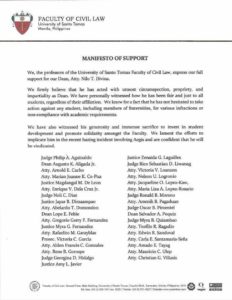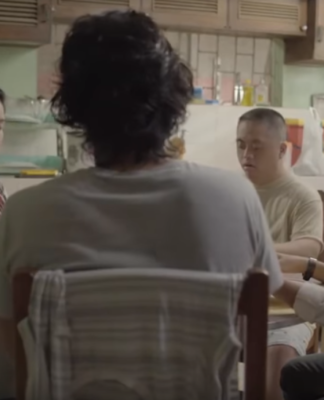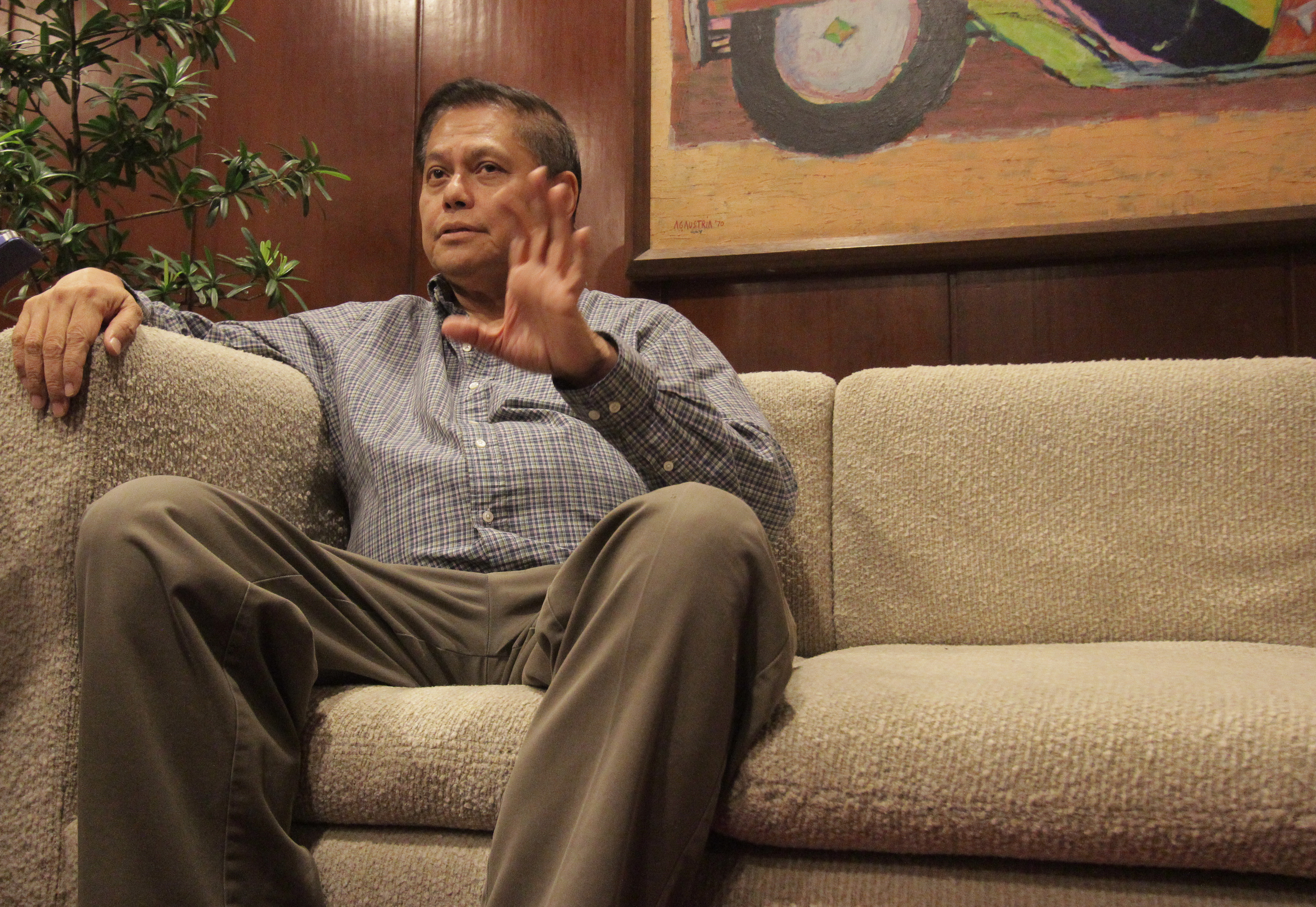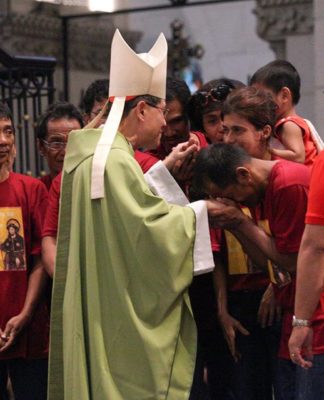Civil Law professors on Friday threw their support for Dean Nilo Divina amid an investigation into the hazing death of law freshman Horacio Castillo III.
In a manifesto of support, 35 UST law professors, which included justices, judges and law practitioners, said Divina dealt with the situation with “utmost circumspection” and was impartial as dean of Civil Law.
“We have personally witnessed how he has been fair and just to all students, regardless of their affiliation. We know for a fact that he has not hesitated to take action against any student, including members of fraternities, for various infractions or non-compliance with academic requirements,” the statement read.
Law professors lamented efforts to count Divina as an accomplice in the death of Castillo, supposedly for tolerating the recruitment activities of the fraternity. Divina’s photo, along with those of fellow Aegis Juris alumni, was on the fraternity’s brochures.
Divina said on Thursday he would not take a leave of absence following Sen. Grace Poe’s claim that he had “conflict of interest” amid the investigation.
Poe pointed out that his law firm Divina Law would be tasked to defend both himself and UST in the hazing case. Divina Law is retained by UST for legal services.
“There is… no reason to take a leave of absence. The concern that I may influence the outcome of the ongoing investigation is devoid of basis,” Divina told the Varsitarian in a statement.
“UST is not a public institution. It is a private educational institution with its own rules, policies and norms. The deanship is a matter between me and UST (with its stakeholders),” he added.
Divina also noted that he was not part of UST’s investigating committee formed by Rector Fr. Herminio Dagohoy, O.P.
“I am not part of the committee. I do not interfere in the conduct of its investigation. The members are independent who cannot be swayed by any consideration other than the search for truth,” Divina said.
“I did not do anything wrong. I am serene with the knowledge that I did not transgress the law or breach any moral obligation,” he added.


















